Interview: The devs at Snowman share their thoughts and inspiration behind flying game Laya's Horizon
An interview with the dev team behind Laya's Horizon.
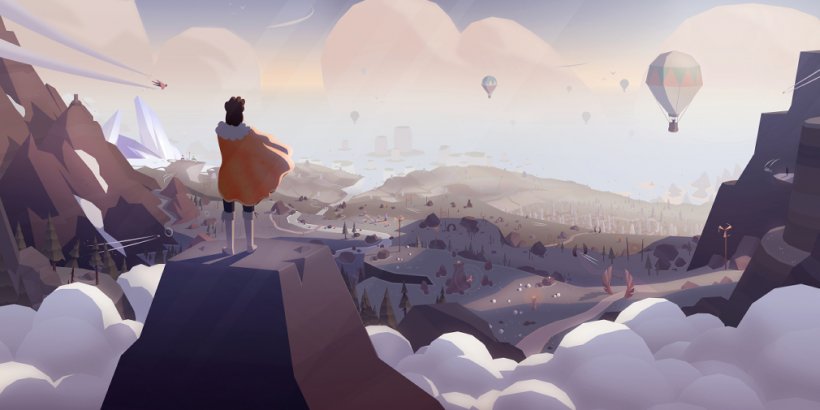
Snowman has built up a reputation for making games that move at a gradual and calming pace. They don't tend to apply any pressure to you and create an experience you can jump into whenever you need a break from the world. Their latest release is Laya's Horizon which can be downloaded on iOS and Android via Netflix Games. It follows the journey of a young woman named Laya who is part of a community of gliders who have mastered the art of flying through the use of special capes. You're free to play as you want, soaring and exploring across the land or completing missions for a bit of a challenge.
This is one of the biggest games that Snowman has worked on and there's quite a story behind it. We were lucky enough to get to sit down with several key members of the development team to discuss the game's history and its future. Through a combination of personal experience and desire to create a game that anyone can play whenever they want, the team shares where this game came from and what they hope players will feel from getting to live out the fantasy of flying in the palms of their hands.
Thank you so much for making time to talk, guys. Before we dive right, why don't you introduce yourselves and your roles?
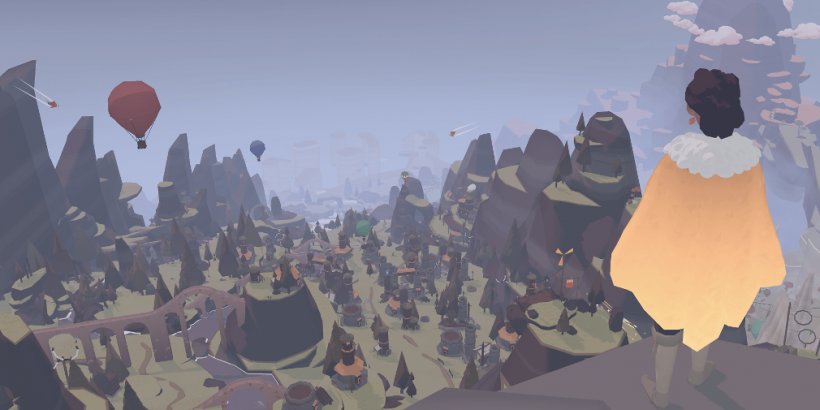
Ryan: Hi, I'm Ryan Cash and I'm one of the co-founders of Snowman. Specifically on this project, I was involved in its earlier days dating back to 2018. I'm mainly focused on the company side of things, but I also like to get my hands dirty working on the games themselves.
Jason: Hey, I'm Jason Medeiros and I'm the lead of design and development at Snowman. This means I touched all of our projects at some point and on this one, I was the creative director.
Owais: Hey, I'm Owais Akhtar and I'm a game producer at Snowman and I was the lead producer on Laya's Horizon.
Awesome, it's great to meet you all. Let's get rolling with the game concept. How did you come up with it?
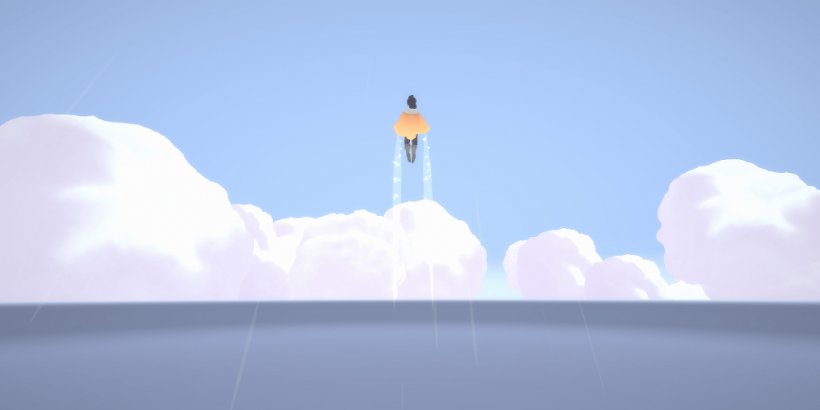
Ryan: It's a bit of a backstory. Everyone has their own place for where the game comes from and for me, it's that I've always had a fascination with flight. A lot of this came from my grandfather who was a glider pilot and he would take me up for flights in the summer sometimes. From there, I got glider pilot lessons and started to learn about the theories and mechanics surrounding flight as I got older. This let me live out the dream of flying which every kid has at one point or another. I thought about this a lot when we started making video games as a company, and what kind of games we could make.
When we were making Alto’s Adventure we were inspired by the manual system in Tony Hawk's Pro Skater 2 and decided to add a wingsuit to the game to let players get more creative with their trick combos. This dabble into wing-suiting never quite scratched the itch for me and I knew it was something we’d want to explore more deeply in its own game – one that could hopefully capture what it would feel like to actually fly. We also started watching a lot of wingsuit videos for research and to get a better idea of the concept we wanted to develop in a flying experience of our own.
Jason: Yeah, and this led to the wingsuit project. As we watched these videos, we looked closely at their stance, how they used their body to fly, and how they were just using movement to fly. And this was something called kinesthetic which became our hook. We were gonna make controls that feel like something for the player to do.
I definitely felt that while playing. Is this your biggest game to date?
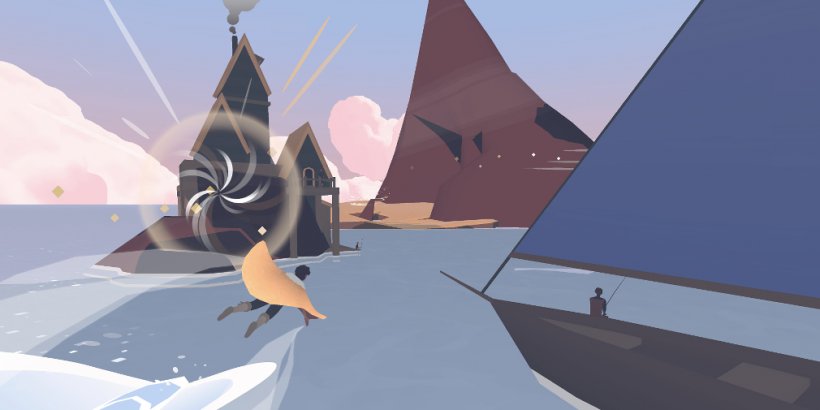
Ryan: Yeah, I would say, definitely at Snowman, it's the biggest game we've made.
Owais: It's a brand new IP with the largest world we've created with the largest team behind it. The thing is that with the Alto games, all of the worlds are procedurally generated but this game is totally handcrafted. Everything you see in the game from controls to individual assets was made and placed by a human being. Being an open world, this is the biggest space we've created in-game, so far.
Wow, so, considering how big an interactive the game is, how you considered porting it to other platforms?
Jason: So, a lot of things about this game's design are based on the mobile gaming context. The size of the open world has the aspect of being made in a way so that it can run on mobile devices, but it's also the right size for a mobile play session. You can jump off the mountain, fly down to the base, and land or crash in a couple of minutes which is around the average mobile play session. You do this as many times as you want with quick restarts and minimal loading creating a loop that is based on bite-sized gameplay. Then the other reason why we think it's appropriate for mobile, is that our dual-touch kinesthetic controls lend themselves very nicely to touchscreen. Having other types of controls would really change the feeling of the game, but maybe in the future.
That makes a lot of sense. In terms of reach and accessibility, is this the first time you've worked with Netflix?
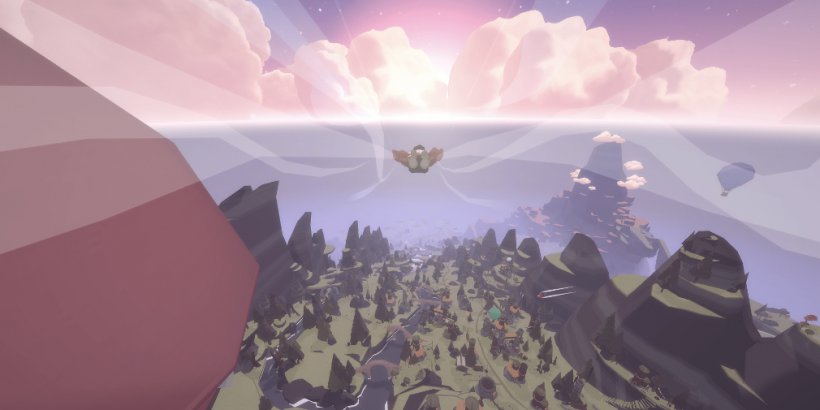
Ryan: We actually launched a game on Netflix last fall called Lucky Luna. That was our first experience working with them. See, we like to make games where we don't have to worry about flooding the players with ads and promotions, and Netflix makes that possible. It's also another removal of a roadblock since you'd be hard-pressed to find someone without a Netflix account.
Owais: Netflix has a global audience of over 200 million, so we have a real opportunity to introduce our games to players who may not have even considered playing them before. We can showcase these unique experiences they can have. Nowadays, there are a large number of mobile games that are microtransaction-heavy with in-app purchases or tons of ads that make them barely playable. However, our partnership with someone like Netflix opens up an awesome new avenue to share our vision with a vast and diverse audience.
It's exciting to see more of these spaces pop up where we can design games right from the start without having to worry about ads or purchases. We can just focus on the core experience that the player will get in the game and kind of just build from there. Netflix has always been a great place for storytelling and embraces very strong, original, and creative ideas. It just makes sense to partner with them.
Okay, I can understand. Now, even though the game just released, are there any plans to expand it or add new content?
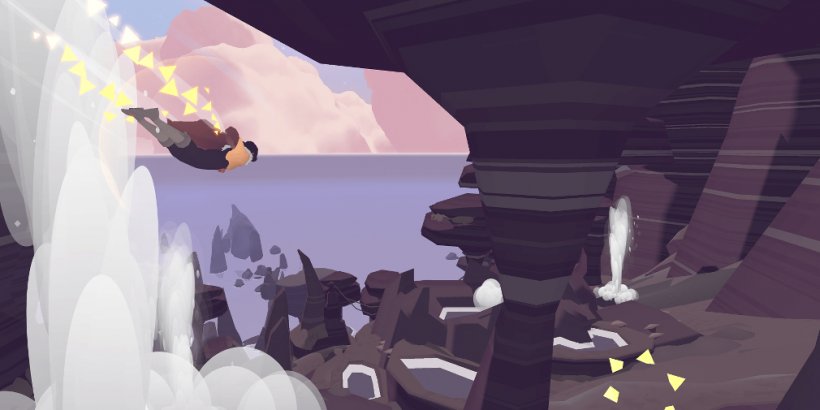
Ryan: Sure, so, I think I can answer that in two ways. For now, we have nothing official to announce yet. Often when we're making a game, there's a lot that doesn't get put into it, so we have a lot of ideas. Some of these we may release down the road and it's really great to hear from the players and what they want. An example is when we heard that a lot of players were using Alto's Adventure to relax and so we doubled down by adding Zen Mode. We're curious to see what players think about Laya's Horizon, but I will say that there's quite a bit of content in the game.
Owais: Just to mention it, someone on the team who'd been working on the game for years, it will still take them 12 to 14 hours to finish all the content. For a brand new player who's jumping on, it can easily take them 20 to 40 hours.
That's amazing and I'm curious to see if it will become even bigger. Before we wrap up, I want to ask each of you: If there's one thing you'd like players to take away from Laya's Horizon, what would it be?
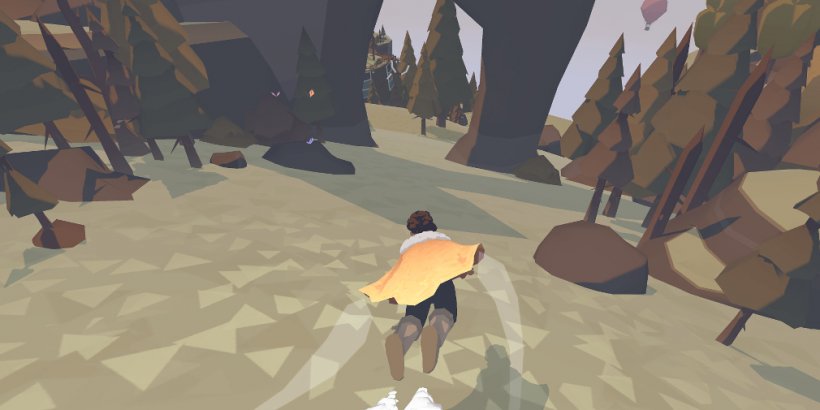
Ryan: I think for me, my main hope is that people feel that they can scratch a little bit of that itch of that childhood dream of feeling like you're flying.
Jason: For me, I think there's a lot. Like, I hope people enjoy the peaceful environment we made, the concept-free world that we're in where there's no conflict happening. Though, I'd have to say the core thing is, I hope people enjoy the kinesthetic controls. I hope it feels like an exciting and embodying moment for them.
Owais: For me, it's that I want them to feel sort of in awe. As they experience the world, they feel that it's a really dense and packed world on a mobile device. I want them to really see the hard work that the team has put into the game really making it so that every time they open the game, there's always something to do. That they can really escape into it.